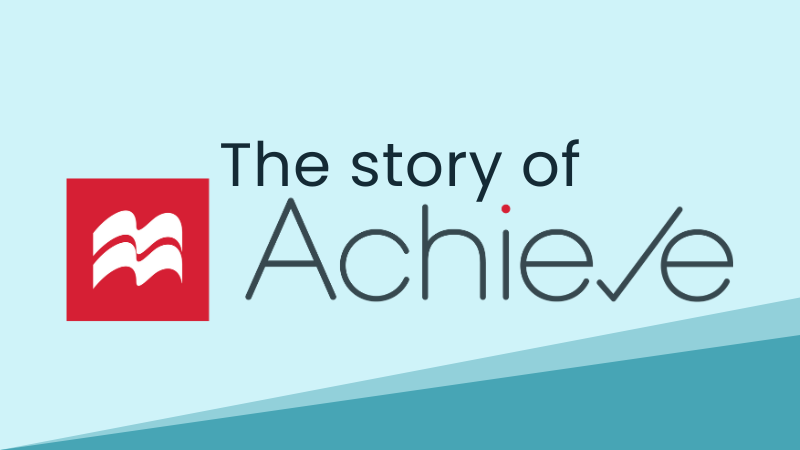Our Commitment to All Learners: An Achieve Story
Learn more about the origins of our outstanding educational software with Senior Vice President Tim Flem.
Tim Flem . Nov, 2022

Higher education has always been about broadening horizons and exploring a diversity of thought and experiences. I met people of all backgrounds and perspectives when I went to university and those experiences had a profound effect on my thinking about education. To this day, I feel I learned as much in my freshman dorm room at Daniels Hall at University of Cincinnati as I did in the upper-level literature courses in McMicken Hall.
Those formative experiences have also informed my nearly-30-year career in educational publishing and software, where I have been seeking to amplify the impact of learning products for all students. It is complex work, with an equal balance of research, development, design, and testing. At Macmillan Learning, I’m fortunate to lead a team of product managers, user experience designers, and learning science researchers as we tackle these complex challenges. I am most proud that our new learning platform, Achieve, has already proven to positively impact outcomes for students, no matter their background, ethnicity, or income level.
We began our Achieve design process in 2017 with a series of co-design sessions in which we paired a diverse group of students and faculty. We armed them with post-it notes and markers at a whiteboard to share ideas, and learn what was most important to them. The observations of campus life and learning experiences from those sessions broadened our horizons to the needs of all learners, including the most underserved and vulnerable.
Because our impact researchers obtain two levels of Institutional Review Board approval from each institution we work with, we are able to use demographic data–with strict and appropriate privacy and security measures in place–to measure the impact of Achieve for all learners. I’m especially proud of the research we do to measure the impact Achieve has on underserved populations. While we have seen evidence that underserved populations see better outcomes when they use Achieve, our work is far from done. By pairing our impact researchers with Achieve product managers and user experience designers, we continue to improve the product.
It is this commitment to impact research and continuous product improvement that brought Macmillan Learning to a conversation with the Bill & Melinda Gates Foundation. We’ve taken the first steps in a new research project to better understand how courseware products such as Achieve can be used to help support minority ethnic and low-income students’ success. I’m interested in discovering more about how we can produce an impact that is “greater than the sum of its parts” between all education institutions who share the mission of serving these traditionally underserved populations.
While we are justifiably proud of the progress we’ve made with Achieve, we always have an eye on continuous improvement. Our goal has always been to support the ongoing success of all learners, and we are all glad that Achieve is helping to do that.



